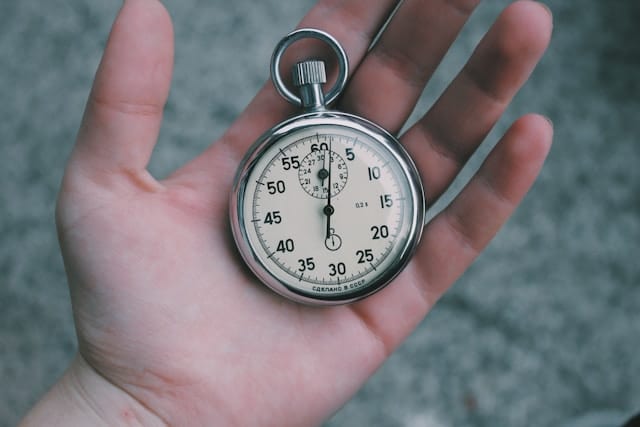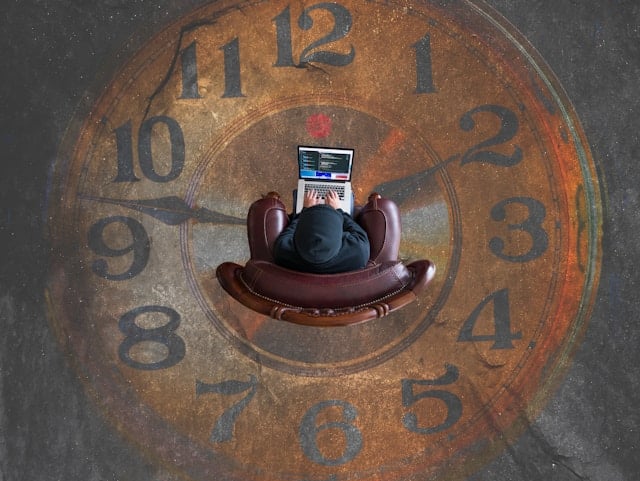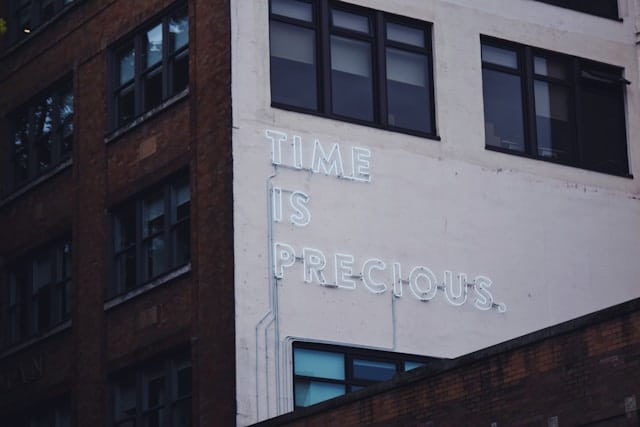Ever wondered why time seems to fly by quicker than ever, particularly since 2020? Many people share this sensation, feeling like the days are long but the years are short. In a viral TikTok video, Thomas Mulligan shares his “time perception theory,” which proposes that our shifting perception of time could be the reason. Here, we delve into his idea and other psychological insights to understand why time seems to be accelerating.

Mulligan’s theory suggests that as we age, each year becomes a smaller portion of our entire life, leading us to feel that time is moving faster. When we’re young, each year feels lengthy because it makes up a larger part of our lives. For instance, when you’re a child, a single year represents a significant portion of your experience, but by age 30, a year is just a small slice of it, making it feel shorter.
In his video, Mulligan explains this theory with a simple breakdown: on your first birthday, one year represents 100% of your life. By your second birthday, it accounts for 50%. By age 20, one year constitutes only 5% of your life. As we get older, the proportion of each new year shrinks, causing the sensation that time is speeding up.
@mulligan.tvTime perception theory
Psychologists have observed that time feels slower when our brains process new information. New experiences make us more aware of passing moments, while routine dulls this awareness, causing time to seem to speed up. When life becomes familiar, our brains have less to process, making time seem to fly by.
Neuroscientist Santosh Kesari explains that childhood feels longer because it’s filled with new experiences that imprint lasting memories. “We remember time by events, and fewer new things happen as we age, making childhood seem extended,” he says. Mulligan’s theory aligns with this idea, suggesting that as we age and encounter fewer unique experiences, time appears to speed up.

The pandemic has influenced many people’s sense of time. With lockdowns came repetitive routines, remote work, and minimal social interaction, blurring the days together. Many were isolated in digital spaces, disconnected from the physical world, which accelerated the feeling that the past few years have zipped by.
Mulligan’s theory also touches on how spending more time online creates a sameness that makes time seem faster. While the outside world was paused, immersion in digital routines made each day feel similar, contributing to the sensation of time slipping away.
Introducing variety and new experiences into life can slow down our perception of time, according to psychologists. Traveling, learning a new skill, or trying a fresh activity engages our brains, making time feel more expansive. The “Holiday Paradox” explains this well: enjoyable moments may feel short as they happen but feel longer in retrospect because they create rich memories.

Practicing mindfulness can help slow down our perception of time by making everyday moments more meaningful. Paying attention to simple experiences, like feeling water in the shower or observing scenery on a commute, can help anchor these moments in our memories, giving them depth and making time feel more substantial.
The idea that time speeds up with age is widely acknowledged. Time perception’s relativity means that each year feels shorter as it constitutes a smaller part of our lives. Familiarity in our routines only heightens this sensation.
Neuroscientist Patricia Costello highlights that children’s developing brains process time differently. “Working memory, attention, and executive function in children are still maturing, which affects how they perceive time,” she notes. This ongoing brain development may explain why childhood feels longer compared to adulthood.

Breaking out of routines and trying new things can help slow down your sense of time. Exploring new places, picking up a new hobby, or meeting new people can create richer memories and make life feel longer. By expanding the information your brain processes, you can stretch out your sense of time.
Santosh Kesari recommends reflecting on each day as a way to enrich memory. “Spend some time each night reviewing your day’s events,” he advises. This habit reinforces memories, giving time a greater sense of fullness and meaning.
